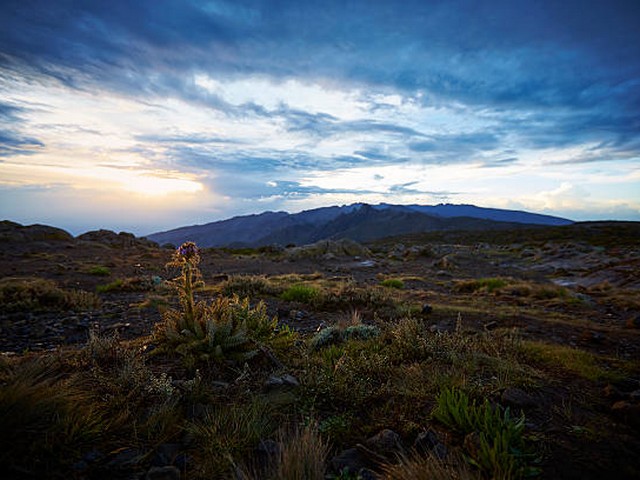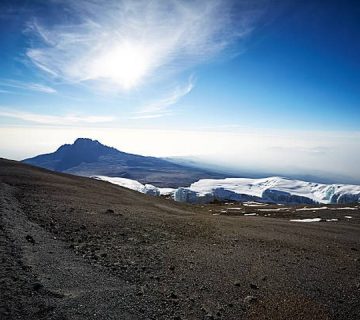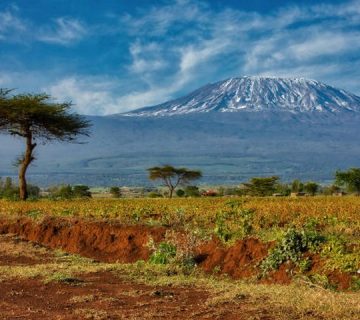What To Do In Case Of A Medical Emergency On Kilimanjaro
As you prepare to conquer the majestic Mount Kilimanjaro, visions of breathtaking vistas and the exhilarating challenge beckon. However, amidst the excitement and anticipation, it’s crucial to address a less talked about, yet vital aspect of your trek—preparing for possible medical emergencies. At the Kilimanjaro Centre for Trekking and Ecotourism (KCTE), we believe in empowering our adventurers with knowledge that ensures safety while embracing the raw beauty of Africa’s highest peak. In this blog, we’ll dive deep into essential information and practical tips on handling medical emergencies on Mount Kilimanjaro.
Understanding the Risks on Mount Kilimanjaro
Before embarking on this journey of a lifetime, recognizing and understanding potential health risks is pivotal. The altitude, climate, and physical demands of climbing Kilimanjaro can lead to health issues ranging from mild altitude sickness to more severe conditions like High Altitude Pulmonary Edema (HAPE) or High Altitude Cerebral Edema (HACE).
Altitude Sickness: Recognize the Signs
The most common ailment that trekkers face on Kilimanjaro is altitude sickness. Symptoms may include:
- Headache
- Nausea
- Dizziness
- Fatigue
- Shortness of breath
Being aware of these signs and responding promptly can make a significant difference in health outcomes.
Preparedness: Your Medical Safety Net
1. Pre-Trek Health Checks
Start your journey right by undergoing a comprehensive health evaluation. Ensure that you are in good physical condition and discuss any underlying health issues with your doctor. Vaccinations, health insurance, and a fitness regimen should be part of your preparation.
2. Training and Acclimatization
Physical preparation is not just about fitness; it’s about acclimatization. Spend a few days at higher altitudes if possible before the climb to get your body used to the reduced oxygen levels.
3. Packing Essentials
Your backpack is your emergency kit. Pack medication for altitude sickness, as recommended by your doctor. Also include:
- First-aid supplies
- Water purification tablets
- Sunscreen and lip balm with high SPF
- Thermal blankets
On the Mountain: Emergency Protocols
Recognizing and Reacting to Emergencies
Immediate response can prevent complications when symptoms of altitude sickness or other illnesses arise. Here’s what you can do:
- Descend immediately if symptoms of altitude sickness worsen despite medication.
- Keep hydrated and maintain energy levels with light, high-energy foods.
KCTE’s Role in Your Safety
At KCTE, your safety is our utmost priority. Our guides are trained in first aid and carry emergency supplies at all times. We maintain regular communication lines open for emergency evacuations if necessary.
Communication and Evacuation
Reliable communication tools are vital. At KCTE, we equip our guides with radios and satellite phones. In case of a severe medical emergency, helicopter rescue services are coordinated swiftly to ensure the wellbeing of our trekkers.
When Adventure Calls: Why Choose KCTE?
Choosing the right tour operator not only enhances your Kilimanjaro experience but also ensures that you are equipped with the necessary support in times of need. Here’s why you should book your climb with Kilimanjaro Centre for Trekking and Ecotourism (KCTE):
-
Experienced and Certified Guides: Our guides are trained to handle a spectrum of medical emergencies and are certified in wilderness first aid.
-
Safety-First Protocols: From regular health checks to emergency response strategies, our protocols are designed with your safety as the priority.
-
Sustainable and Ethical Climbing: We believe in preserving the beauty of Kilimanjaro and support eco-friendly practices that contribute to conservation efforts.
In Summary: Your Safety, Your Adventure
Climbing Kilimanjaro is an exhilarating experience that challenges your limits and rewards you with unforgettable memories. Being prepared for every aspect of the trek, especially medical emergencies, is key to a successful and safe adventure. At KCTE, we are committed to providing an experience that is not only thrilling but also secure and responsible.
Ready to embark on this incredible journey with us? Visit our website and book your adventure with the Kilimanjaro Centre for Trekking and Ecotourism today. Let’s conquer Kilimanjaro together, safely and spectacularly!
FAQ: Handling Emergencies on Kilimanjaro
Q: How common is altitude sickness on Kilimanjaro?
A: Altitude sickness affects a significant number of climbers, which is why acclimatization and awareness are crucial.
Q: What should I do if I start feeling very ill?
A: Inform your guide immediately, begin descent to a lower altitude, and hydrate consistently.
Q: Can I get evacuated if my condition is severe?
A: Yes, KCTE coordinates with helicopter services for immediate evacuation in severe medical situations.
Q: Are KCTE guides trained to deal with emergencies?
A: Absolutely, all our guides have certifications in first aid and are experienced in emergency response on Kilimanjaro.
Join us at KCTE for a Kilimanjaro adventure where safety and awe-inspiring experiences go hand in hand. Book now and step into a journey that stays with you forever!




